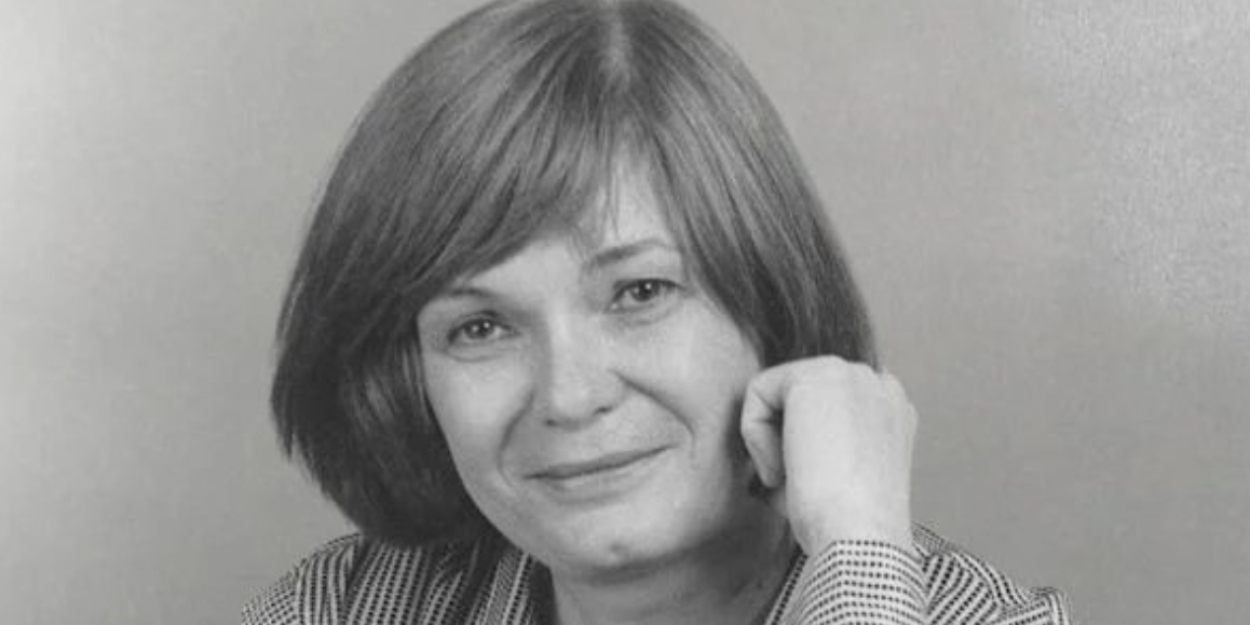Barbara Kolb, Pioneering Composer and First American Woman to Win the Rome, Dies At Age 85
Kolb, age 85, is the composer of evocative, intense works featuring interwoven textures, often inspired by poetry and images.

Boosey & Hawkes has announced the passing of Barbara Kolb, age 85, composer of evocative, intense works featuring interwoven textures, often inspired by poetry and images.
Composer Barbara Kolb (February 10, 1939-October 21, 2024), who created a distinctive contemporary form of Impressionism during her lifetime, passed away at age 85 at her home in North Providence, Rhode Island. Born in Hartford, Connecticut, Kolb was celebrated for her intricate, impressionistic textures and a freely atonal yet deeply expressive harmonic language. The Chicago Tribune wrote: “[Kolb] hears timbres as precisely as she manipulates intricate motivic structures.”
Kolb was the first American woman to receive the prestigious Rome Prize in music composition (1969-1871). Her numerous accolades included three Tanglewood Fellowships, four MacDowell Colony Fellowships, two Guggenheim Fellowships, and a Fulbright Scholarship that took her to Vienna. Throughout her career, she continually pushed the boundaries of classical music, creating evocative music that drew inspiration from literature and visual arts.
Kolb received her Bachelor of Music degree (1961) and Master of Music degree (1964) at the Hartt School of Music of the University of Hartford, where she studied with Arnold Franchetti, Lukas Foss, and Gunther Schuller. Her music found a home with some of the world's most prestigious orchestras, including the New York Philharmonic, Boston Symphony Orchestra, and the Atlanta Symphony Orchestra. Her works were conducted by Pierre Boulez, Seiji Ozawa, Robert Shaw, and Leonard Slatkin.
In 1983-1884, she spent nine months in residence at IRCAM, where she received a commission for a chamber ensemble and computer-generated tape. The resulting work, Millefoglie, premiered in Paris at the Centre Georges-Pompidou on June 5, 1985, with Piotr Eötvös conducting. Millefoglie became one of her most celebrated compositions, receiving the prestigious Kennedy Center Friedheim Award in 1987, and performances in major cities around the world, including Amsterdam, Brussels, Cologne, Helsinki, Montreal, Vienna, Dallas, Washington, D.C., and Tokyo.
Kolb's Umbrian Colors for guitar and violin premiered was premiered in 1986 by Pina Carmirelli and David Starobin (for whom it was composed) at the Marlboro Music Festival. Yet That Things Go Round for chamber orchestra, commissioned by the Fromm Foundation and the New York Chamber Symphony, premiered at the 92nd Street Y in May 1987, with Gerard Schwarz conducting. Her piano concerto Voyants, commissioned by Radio France, was first performed in 1991 at the Théâtre des Champs-Élysées with pianist Jay Gottlieb, Orchestre Philharmonique de Radio France, and conductor Joel Revsen. Its US premiere took place in 1992 at the Kennedy Center, and it was later performed in Austria, Rome, and at the 'Imagine' festival in Memphis. Another notable commission, All In Good Time for orchestra, was written for the New York Philharmonic's 150th anniversary and premiered in 1994 under Leonard Slatkin. Slatkin also conducted the work with the St. Louis and San Francisco symphonies.
Her final work, Three Medieval Chants for saxophone quartet, was written from 2005-2018, and was premiered in 2019 by the New Century Saxophone Quartet in Greenville, North Carolina. The work comprises three “chant” movements, each based on modes from the 13th and 14th centuries, from three different countries: I. Francisco Chant; II. Bulgarian Chant, and III. Raga Basant.
“[Kolb] hears timbres as precisely as she manipulates intricate motivic structures.” —Chicago Tribune
In 1984-85, Kolb held the post of visiting professor of composition at the Eastman School of Music. She also taught theory and composition at Brooklyn College, CUNY, Temple University. Between 1982 and 1986, she developed a music theory course, sponsored by the Library of Congress, for the blind and physically disabled.
Several major recordings of Kolb's music have preserved her legacy for future generations. Albums devoted solely to Kolb's music include Barbara Kolb: Millefoglie and Other Works, featuring Millefoglie for orchestra and tape, Extremes for cello and flute, Chromatic Fantasy for narrator and six instruments, and Solitaire for piano and pre-recorded tape; and Barbara Kolb: Soundings and Other Works, featuring Ensemble InterContemporain, conductor Arthur Tamayo, and other musicians performing Soundings for chamber ensemble and tape, Toccata for harpsichord and tape, Appello for piano solo, Looking for Claudio for guitar and tape, and Spring River Flowers Moon Night for two pianos and tape. Other notable recordings include American Orchestra Works, featuring the Grant Park Orchestra and Carlos Kalmar performing All in Good Time.
In addition to her composition activities, Kolb was also an advocate for contemporary music. She served as the artistic director of "Music New to New York" from 1979 to 1982, a series that championed composers outside of New York City who had limited opportunities to have their works performed.
From 2001-2004, Barbara Kolb was composer-in-residence in Providence under the auspices of a Meet The Composer New Residencies grant. Her constituents were Festival Ballet Providence, WaterFire Providence, and the Rhode Island Philharmonic. She also founded and directed "Vibe of the Venue," a new music series that highlighted the work of local composers and international artists.
Barbara Kolb's archives are available at the Library of Congress. Her music is published by Boosey & Hawkes. Visit boosey.com/Kolb for more information about Barbara Kolb.
Comments

Videos

